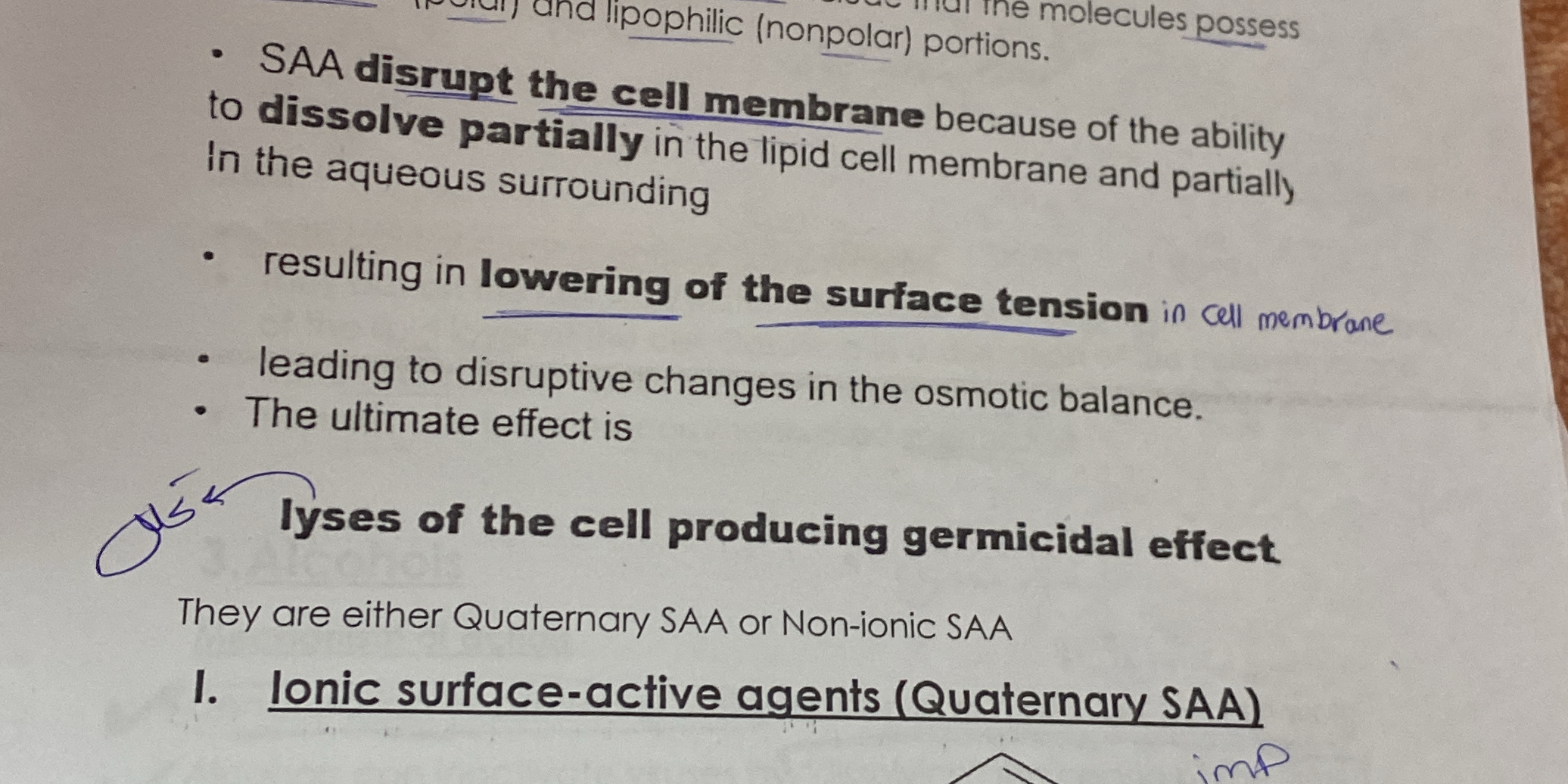What are Surface Active Agents (SAA) and how do they affect the cell membrane?

Understand the Problem
The question is discussing the role of Surface Active Agents (SAA) in disrupting the cell membrane, leading to changes in surface tension and osmotic balance. It details how this disruption causes cell lysis and outlines the types of SAAs involved.
Answer
SAAs disrupt cell membranes, lowering surface tension, affecting osmotic balance, and causing cell lysis.
Surface active agents (SAAs) disrupt the cell membrane by penetrating the lipid bilayer, which lowers the surface tension and increases membrane permeability. This disruption affects osmotic balance and can lead to cell lysis, effectively killing the cell.
Answer for screen readers
Surface active agents (SAAs) disrupt the cell membrane by penetrating the lipid bilayer, which lowers the surface tension and increases membrane permeability. This disruption affects osmotic balance and can lead to cell lysis, effectively killing the cell.
More Information
SAAs, commonly known as surfactants, are amphiphilic molecules with both hydrophilic and hydrophobic parts. They can disrupt biological membranes due to their ability to integrate into and destabilize lipid bilayers.
Tips
SAAs are often confused with simple detergents; however, their biological implications, such as disrupting cell membranes, are crucial in various applications.
Sources
- PMC Article on SAAs - pmc.ncbi.nlm.nih.gov
- Surfactants in Microbial Control - pearson.com
AI-generated content may contain errors. Please verify critical information